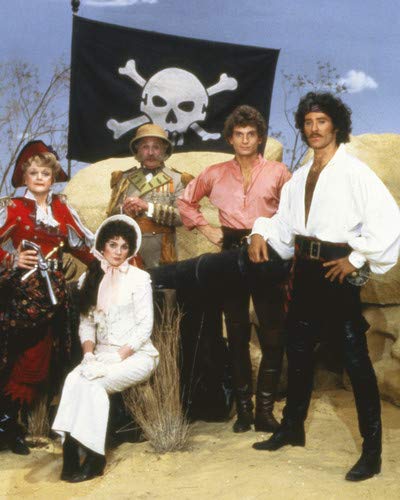Pirates & Overtime

I previously wrote about the intersection of my daughter’s and my primary interests- princesses and the Fair Labor Standards Act- in a post about whether a princess is entitled to overtime pay. Today, I would like to address one of my son’s favorite interests- pirates. Is a pirate entitled to overtime pay?
Under the Fair Labor Standards Act (FLSA), employees are generally entitled to minimum wage for all hours worked and one and one-half times their regular rate of pay for hours worked in excess of forty per week, called “overtime.” There are, however, many exceptions to these rules. An employee can be “exempt” from one or both of these requirements based on their work situation, meaning they do not have to get overtime pay for overtime hours and/or they do not have to get minimum wage for all hours worked. In most circumstances, whether a person is exempt from the overtime pay requirements of the FLSA is based on the actual work they do. A title- even a title as fearsome as “pirate”- is not enough to determine whether an employer has to pay an employee overtime.
So first, we need to determine what we mean by “pirate.” To be clear, my son is not just interested in any pirates- he is obsessed with the Pirates of Penzance, the 1879 comic opera by Gilbert and Sullivan. These gentleman Victorian pirates sail along the coast of Cornwall, England, attacking only parties who are stronger than they are and refraining from harming fellow orphans. Although they do attempt to commit burglary on land in the second act, the lyrics make clear that this is a departure from their normal job duties, so we can safely assume that their work is generally nautical in nature.
This brings us to a Fair Labor Standards Act exception to the overtime pay requirement- the maritime exemption. The FLSA provides an exemption to the overtime pay requirements for “any employee employed as a seaman.” Cases addressing this exemption have defined “seaman” as someone who is subject to the authority, direction and control of the vessel’s master AND whose service is to assist the vessel as a means of transportation (meaning a substantial part of the seaman’s work must relate to safe navigation of the ship.)
The first requirement for the exemption is easily met. All of the pirates in Pirates of Penzance work under the authority of the Pirate King, except for the Pirate King himself, who clearly falls under the executive exemption because of his managerial authority. The second requirement of the exemption is more complicated. To fall under the exemption, the pirates must perform substantial work related to the ship’s transportation. This does not mean that they all have to be the person who actually steers the ship- jobs such as operating and maintaining the sails, navigating from the crow’s nest, and necessary ship maintenance are all part of the work that must be done to help the ship successfully work as a means of transportation for the pirates. However, assume you had a pirate who did absolute nothing other than engaging in thievery- he slept in a hammock below deck or counted his booty while all the other pirates sailed the ship, and only worked or even came to the quarterdeck when it was time to plunder. In this case, the pirate would been seen by the FLSA as primarily a thief, who happens to use the ship as a means of transportation, not a “seaman” who actually works towards making the ship itself operate.
So, to determine whether the famous Pirates of Penzance are entitled to overtime, you must look at both criteria, and both must be met for the pirates to be exempt from the overtime pay requirements of the FLSA. Even if all of the pirates work for the Pirate King, they must also perform substantial job duties that relate to the safe navigation of their pirate ship to be exempt from overtime pay requirements under the seaman exemption.
Some important points must be made with respect to the Pirates of Penzance and their protections under the FLSA. The first is that they have none. As previously stated, these are British pirates, and proud subjects of the British crown who love Queen Victoria. The Fair Labor Standards Act is an American law that provides for minimum wage and overtime protection within the United States. The second point is that piracy is illegal. If a pirate of Penzance were to file a lawsuit for unpaid overtime wages under the Fair Labor Standards Act, they would quickly be criminally penalized for their piracy. That said, pirates, like everyone else, should know when they are entitled to overtime pay for hours worked in excess of forty per week.
If you are a pirate or any other type of employee who believes you are not getting the overtime pay you should get, please contact Gold Star Law for help.


